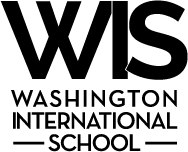- Education Topics
- Achievement Gap
- Alternative Education
- American Education Awards
- Assessment & Evaluation
- Education during COVID-19
- Education Economics
- Education Environment
- Education in the United States during COVID-19
- Education Issues
- Education Policy
- Education Psychology
- Education Scandals and Controversies
- Education Reform
- Education Theory
- Education Worldwide
- Educational Leadership
- Educational Philosophy
- Educational Research
- Educational Technology
- Federal Education Legislation
- Higher Education Worldwide
- Homeless Education
- Homeschooling in the United States
- Migrant Education
- Neglected/Deliquent Students
- Pedagogy
- Sociology of Education
- Special Needs
- National Directories
- After School Programs
- Alternative Schools
- The Arts
- At-Risk Students
- Camps
- Camp Services
- Colleges & Universities
- Counties
- Driving Schools
- Educational Businesses
- Financial Aid
- Higher Education
- International Programs
- Jewish Community Centers
- K-12 Schools
- Language Studies
- Libraries
- Organizations
- Preschools
- Professional Development
- Prom Services
- School Assemblies
- School Districts
- School Field Trips
- School Health
- School Supplies
- School Travel
- School Vendors
- Schools Worldwide
- Special Education
- Special Needs
- Study Abroad
- Teaching Abroad
- Volunteer Programs
- Youth Sports
- For Schools
- Academic Standards
- Assembly Programs
- Blue Ribbon Schools Program
- Educational Accreditation
- Educational Television Channels
- Education in the United States
- History of Education in the United States
- Reading Education in the U.S.
- School Grades
- School Meal Programs
- School Types
- School Uniforms
- Special Education in the United States
- Systems of Formal Education
- U.S. Education Legislation
- For Teachers
- Academic Dishonesty
- Childcare State Licensing Requirements
- Classroom Management
- Education Subjects
- Educational Practices
- Interdisciplinary Teaching
- Job and Interview Tips
- Lesson Plans | Grades
- Professional Development
- State Curriculum Standards
- Substitute Teaching
- Teacher Salary
- Teacher Training Programs
- Teaching Methods
- Training and Certification
- For Students
- Academic Competitions
- Admissions Testing
- At-Risk Students
- Career Planning
- College Admissions
- Drivers License
- Educational Programs
- Educational Television
- High School Dropouts
- Higher Education
- School Health
- Senior Proms
- Sex Education
- Standardized Testing
- Student Financial Aid
- Student Television Stations
- Summer Learning Loss
Home | National Directories | Foreign Language Immersion Programs | Washington International School |
Washington International School

Basic Information
Address: 3100 Macomb Street NW
Washington, DC 20008
Phone Number: 202-243-1815
Email: admissions@wis.edu
Head of School: Suzanna Jemsby
Action Shots
* There are currently no photos associated with this listing.
Additional Information
School Type: Independent School
Immersion Type:
Total Immersion
Partial Immersion
Total Immersion
Partial Immersion
Language(s):
English, French, Mandarin, Spanish, others by tutorial
Year Started: 1966
School Size: 900
Mission Statement:
Our mission is to be an exemplary learning community—enriched by differences, informed through inquiry, global in reach.
Philosophy/Belief Statement:
Our challenging international program draws on classroom-based research on pedagogical practices and curriculum design from renowned organizations such as the International Baccalaureate Organization (IB) and Project Zero, a research group based in the Graduate School of Education at Harvard University.
The WIS educational approach reflects the globalized, interconnected society in which we live, giving students a world perspective in mathematics, the sciences, social sciences, languages, literature, technology and the arts.
ABOUT OUR CURRICULA
- From Preschool through Grade 5, students follow the inquiry-based IB Primary Years Program. Preshool to Kindergarten students are fully immersed in French or Spanish. From Grades 1-5, studies are dual language: English/French or English/Spanish.
- In Middle School (Grades 6-8) and Grades 9-10 the academic program continues to develop deep thinking skills to enhance understanding. Teachers emphasize methods from Project Zero.
- All students in Grades 11 and 12 are enrolled in the IB Diploma Program (DP), which prepares them to take exams to receive the International Baccalaureate Diploma in addition to a WIS diploma. The DP is a comprehensive, internationally-focused curriculum that places emphasis on deep understanding of complex topics.

